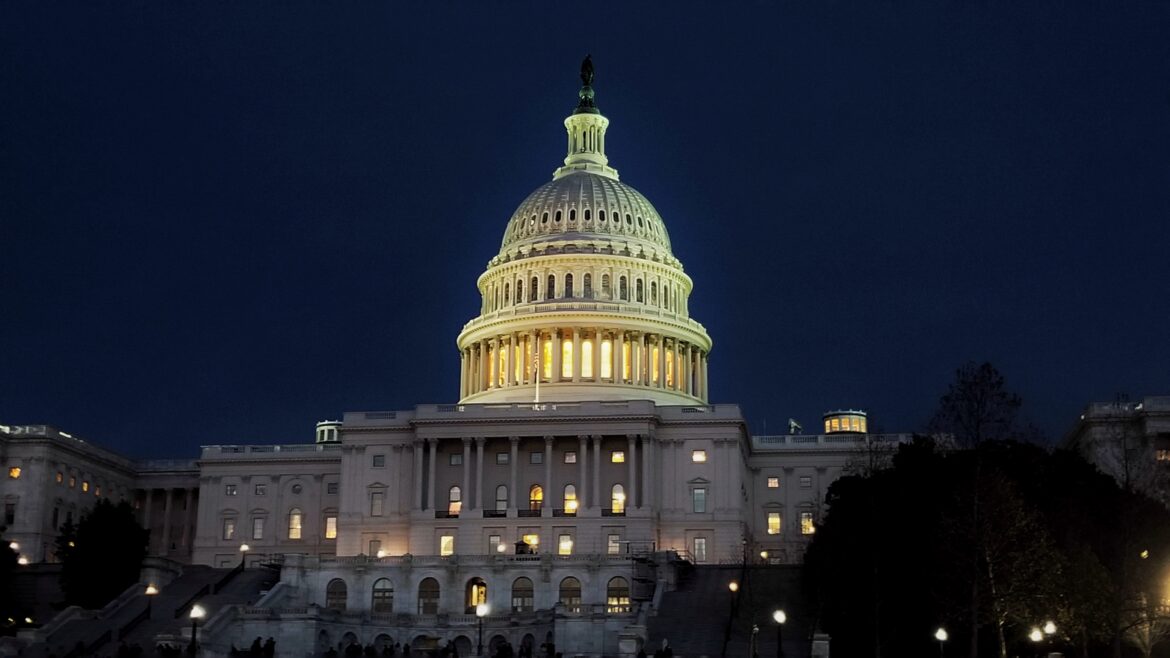Senate-approved rescission of public media funds expected to ‘decimate’ system

Wikimedia Commons
The Senate approved cutting CPB funding as part of a larger rescission package early Thursday morning.
The vote was 51-48, with Republican Sens. Lisa Murkowski (Alaska) and Susan Collins (Maine) voting against the cuts.
The package, now $9 billion, is expected to return to the House after it was amended in the Senate to eliminate $400 million in cuts to global health. The House approved a $9.4 billion rescission package June 12, 214-212, with four Republicans voting against it.
The rescissions include clawing back $535 million annually in CPB’s forward-funded appropriations for fiscal years 2026 and 2027.
In a press release Thursday morning, America’s Public Television Stations CEO Kate Riley warned that if the House passes the package, all funding to local stations would stop Oct. 1 and CPB would shut down. She urged the House to oppose the package.
“This elimination of federal funding will decimate public media and put local stations at risk of going dark, cutting off service to communities that rely on them — many of which have no other access to locally controlled media,” Riley said.
In a Thursday release, CPB CEO Pat Harrison called the Senate vote “a decision with profound, lasting, negative consequences for every American.”
“Without federal funding, many local public radio and television stations will be forced to shut down,” Harrison added. “Parents will have fewer high quality learning resources available for their children. Millions of Americans will have less trustworthy information about their communities, states, country, and world with which to make decisions about the quality of their lives. Cutting federal funding could also put Americans at risk of losing national and local emergency alerts that serve as a lifeline to many Americans in times of severe need.”
Efforts to strike rescission fail
The Senate began voting on a series of amendments to the rescission package Wednesday afternoon before approving the rescissions after 2 a.m. Thursday.
A bipartisan amendment from Sen. Tammy Baldwin (D-Wis.), Sen. Lisa Murkowski (R-Alaska) and others attempted to strike the rescission of CPB’s funding from the package but failed 47-52.
“If we don’t adopt this amendment, local television and radio stations will shut down, and it will be rural stations that will be the first to close,” Baldwin said.
Seventy-nine public radio and 33 TV stations in 34 states and territories are “vulnerable” to cuts in federal funding, according to a “snapshot report” previously released by Sen. Maria Cantwell (D-Wash.), ranking member of the Committee on Commerce, Science and Transportation.
Sen. Ted Cruz (R-Texas) spoke against the amendment, citing bias at NPR and PBS.
“If you want to watch left-wing propaganda, turn on MSNBC, but the taxpayers should not be forced to subsidize it,” Cruz said.
Democrats also cited public media’s emergency safety role and early childhood education in several failed attempts to send the bill back to committee.
“We shouldn’t be pulling the rug out of these children, especially from these communities that are desperately in need,” said Sen. Ruben Gallego (D-Ariz.).
Sen. Eric Schmitt (R-Mo.) argued against the move to recommit the bill, saying NPR and PBS have “drifted far from their original mission and now serve as megaphones for partisan left-wing activism.”
He added local stations have other resources, such as individual donations, corporate sponsorships and support from many states.
“This amendment is not about protecting rural radio stations or television stations,” he said. “It’s about protecting a political agenda with taxpayer dollars.”
Later Wednesday, Sen. Edward Markey (D-Mass.) also cited children’s programming such as Arthur and Daniel Tiger’s Neighborhood.
“This Republican bill cuts will cause stations that deliver this essential children’s programming to go dark,” Markey said.
Earlier Wednesday, Sen. Amy Klobuchar (D-Minn.) argued the clawback didn’t just eliminate CPB funding for NPR and PBS but would primarily affect local radio and television stations.
“I think about these stations in Duluth, in Granite Falls, in Austin [Minn.], and every week 20 million people across the country actually listen to radio programs that were started out of our local Minnesota Public Radio,” Klobuchar said. “Maybe Prairie Home Companion, they’re listening to some of those former broadcasts and they make them smile and they make seniors feel happy when they’re alone in the assisted living. Or maybe Marketplace, that also started in my state.”
Current Interim Executive Director Karen Everhart and Digital Editor Mike Janssen contributed to this report.






Remember too, that the hidden cost of shuttering CPB will shift music licensing fees to the stations. CPB covered the entire music licensing cost. Stations will now have to pay individually unless another method is found.